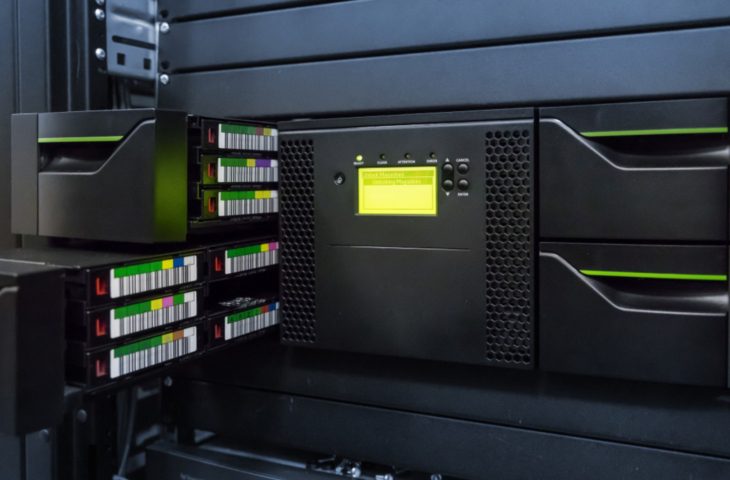IEEE believes that magnetic tape is the best option for long-term data storage in many cases. By choosing adhesive tape, companies can drastically reduce their carbon emissions and save money.
Magnetic tape as a storage medium has a future. In 2018, IDC calculated that sixty percent of the world’s data is “cold.” This means that it is archival data that should not be accessible very quickly. Nevertheless, this data remains on hard drives, while tape is a more environmentally friendly but also cheaper alternative.
Much less emissions
IEEE Spectrum has calculated that a hard drive is responsible for emissions of approximately 2.55 kg per terabyte per year over a five-year lifetime. Magnetic tapes have a service life of thirty years and cause CO2 emissions of 0.07 kg per terabyte and year. Tape therefore emits barely three percent of the CO2 of an HDD per terabyte.
If companies worldwide moved all of their cold data from disk to tape, the carbon footprint of data storage would decrease by approximately 58 percent. That’s good for 79 million tons of CO2 that doesn’t end up in the atmosphere. Because the tape lasts longer, this approach also creates significantly less e-waste.
Less euros too
In practice, the current economic system still encourages short-term gains for shareholders, so the euro and dollar say more than the carbon impact. But you can also plead for adhesive tape there. To store 100PB of data, you need to invest $17.5 million in hard drives. If you archive 60 percent of that data to tape, the cost drops to $9.5 million. Indeed, this reality is causing large companies to reconsider their tape quality. We reported on this at the beginning of the year.
For smaller organizations, the choice of tape remains more difficult. The first complex question is usually which data is “cold” and may be archived. This thought exercise alone requires time and effort. Because tape has a decisive disadvantage: If you still want to find data, it takes much longer.
Milliseconds versus minutes
A hard drive that is switched on usually finds your data within a few milliseconds. With tape recordings, it can easily take half a minute or more before you can access your file. However, technological advances in tape land mean that cassettes are loading and reading faster than ever before.
In some cases, waiting seconds or minutes for a file is not an option, but the problem is less with archive data. Is it really such a disaster to wait an extra 45 seconds for a file that’s been archived for five years when it comes with lower costs and lower emissions? In any case, IEEE points out that magnetic tapes still play an important role today and that it’s a good idea for companies large and small not to forget about their existence.
